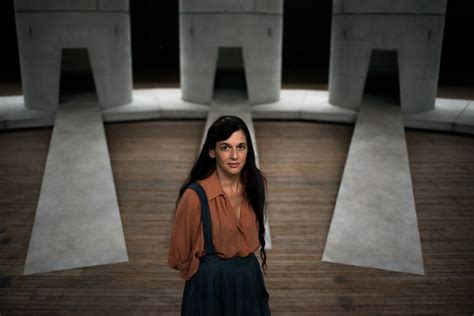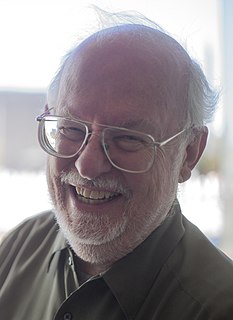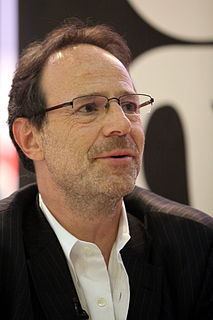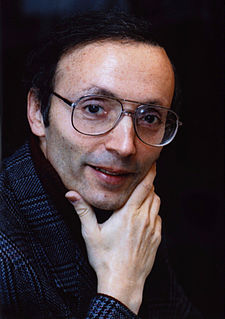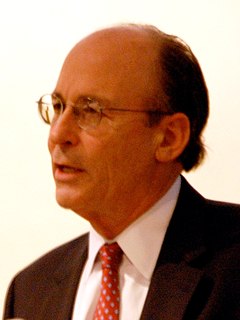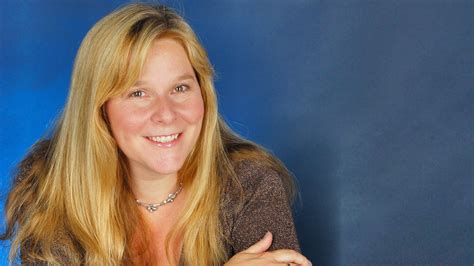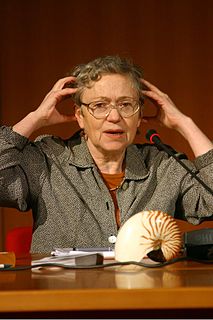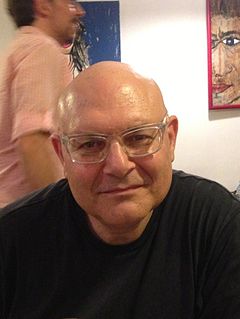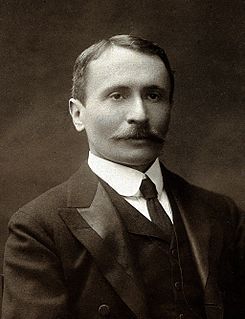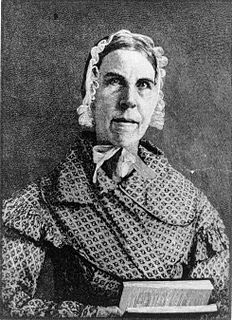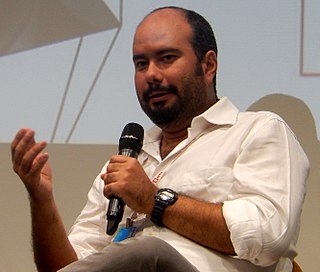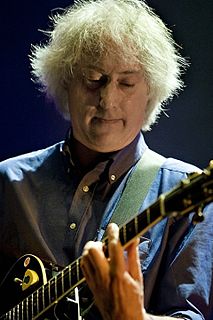Top 470 Translation Quotes & Sayings - Page 7
Explore popular Translation quotes.
Last updated on November 17, 2024.
Parla come magni,' It means, 'Speak the way you eat,' or in my personal translation: 'Say it like you eat it.' It's a reminder - when you're making a big deal out of explaining something, when you're searching for the right words - to keep your language as simple and direct as Roman rood. Don't make a big production out of it. Just lay it on the table.
I've always loved cuneiform; I've always loved the way it looks. I love that it's the world's oldest script. And the creative potential of bad translation or misunderstanding or something has always been at the core of the idea of 'Dirty Projectors.' So the cuneiform is pretty playful - basically, just a joke.
All nonfiction writers, whether they like it or not, are translators. The translator is the perfect journalist. The best journalism endeavors to convey an essential idea or story to an audience that knows very little about it, and that requires translation. To do this successfully, the writer must filter the idea through the prism of his eye, and his mind, and his writing style.
Alternate translation: Come brethren, if you have a mind to be ingrafted in the vine, It is a pity to see you lopped off in this manner From the stock. Reckon up the prelates in the very see of Peter; And in that order of fathers see which has succeeded which. This is the rock over which the proud gates of hell prevail not.
You have hundreds of artists you're dealing with across the world and the scale of this movie [Kung Fu Panda] was insane - we had a parallel pipeline going on where you had two versions recording Mandarin voice actors, getting it to be funny for Mandarin audiences going beyond a straight translation, and then animating it and lighting it, it's a lot of work.
Alongside Han Kang, there's only one other author I've chosen to translate so far - Bae Suah. Her work is radical both stylistically and politically, influenced by her own translation practice (she's translated the likes of Kafka, Pessoa, and Sadeq Hedayat into Korean). Her language is simply extraordinary.
Nothing endures except change; nothing is constant except death. Every heartbeat wounds us, and life would be an eternal bleeding to death, were it not for literature. It grants us what nature does not: a golden time that doesn't rust, a springtime that never wilts, cloudless happiness and eternal youth. [my translation]
We live in a world ruled by fictions of every kind - mass merchandising, advertising, politics conducted as a branch of advertising, the instant translation of science and technology into popular imagery, the increasing blurring and intermingling of identities within the realm of consumer goods, the preempting of any free or original imaginative response to experience by the television screen. We live inside an enormous novel.
Poetry cannot be translated; and, therefore, it is the poets that preserve the languages; for we would not be at the trouble to learn a language if we could have all that is written in it just as well in a translation. But as the beauties of poetry cannot be preserved in any language except that in which it was originally written, we learn the language.
I'm interested in the murky areas where there are no clear answers - or sometimes multiple answers. It's here that I try to imagine patterns or codes to make sense of the unknowns that keep us up at night. I'm also interested in the invisible space between people in communication; the space guided by translation and misinterpretation.
A massive and brilliant accomplishment--the first English translation of the original Grimm brothers' fairy tales. The plain telling is that much more forceful for its simplicity and directness, particularly in scenes of naked self-concern and brutality. Hate, spite, love, magic, all self-evident, heartbreaking, delightful. I will return to this book over and over, no doubt about it.
I was reading in the Bible and one translation says that Jesus said that if you publicly will acknowledge me before people, I will acknowledge you before my Father in heaven. So that is a big part of these meetings like Night of Hope, giving people an opportunity to publicly say, "Jesus, I believe you are the messiah, you're Christ, you're my Lord."
There was the gate next, which she(Liesel)clung to. A gang of tears trudged from her eyes as she held on and refused to go inside. People started to gather on the street, until Rosa Hubermann swore at them, after which they reversed back whence they came. ~A TRANSLATION OF ROSA HUBERMANN’S ANNOUNCEMENT~ ‘What are you arseholes looking at?
To translate kinesics or paralinguistic messages into words is likely to introduce gross falsification due not merely to the human propensity for trying to falsify statements about "feelings" and relationship and to the distortions which arise whenever the products of one system of coding are dissected onto the premises of another, but especially to the fact that all such translation must give to the more or less unconscious and involuntary message the appearance of conscious intent.
I find it interesting that people often seem to believe that authors of realistic fiction are directly translating their personal experiences into their work. The fact is that telling a story is a transformative experience. There is rarely a one-to-one translation onto the page unless you're writing memoir, and even then, memory is unreliable. I think that the best books feel emotionally true, and that truth has to be rooted in real-world experience.
My mother died yesterday, yesterday many years ago. You know, what amazed me the most the next day after her leaving was the fact that the buildings were still in place, the streets were still full of cars running, full of people who were walking, seemingly ignoring that my whole world has just disappeared." (rough translation)
I studied a lot of animal behavior and one of the things I find really interesting is the whole idea that animals are sensory based thinkers and I wrote about this in my book, Animals in Translation. That an animal's memory is not in words, they've got to be in pictures - it's very detailed so let's say the animal gets afraid of something - they'll get afraid of something that they're looking at or hearing, the moment the bad thing happens.
I have made a very rude translation of the Seven against Thebes, and Pindar too I have looked at, and wish he was better worth translating. I believe even the best things are not equal to their fame. Perhaps it would be better to translate fame itself,--or is not that what the poets themselves do? However, I have not done with Pindar yet.
The love of fame is too high and delicate a feeling in the mind to be mixed up with realities, it is a solitary abstraction. * * * A name "fast anchored in the deep abyss of time" is like a star twinkling in the firmament, cold, silent, distant, but eternal and sublime; and our transmitting one to posterity is as if we should contemplate our translation to the skies.
Generally risk-averse, specialist translation imprints have also hollowed out a fairly comfortable niche for themselves: they get ninety percent of the profits for ten percent of the work, often largely funding their operations - and their salaries - through grants that they don't even apply for. If it wasn't for publicly-funded arts bodies and organizations such as PEN, I wouldn't have been able to work on either [Abdellatif] Laâbi or [ Rashid ] Boudjedra.
Never trust the translation or interpretation of something without first trusting its interpreter. One word absent from a sentence can drastically change the true intended meaning of the entire sentence. For instance, if the word love is intentionally or accidentally replaced with hate in a sentence, its effect could trigger a war or false dogma.
I've always gone with Kafka's model of establishing the world from the first line, as in Kafka's famous line from Metamorphosis, "Gregor Samsa woke up from uneasy dreams to find himself transformed into a gigantic insect" (or beetle or cockroach, depending on the translation). I have to have that first line before I can go further.
The continually progressive change to which the meaning of words is subject, the want of a universal language which renders translation necessary, the errors to which translations are again subject, the mistakes of copyists and printers, together with the possibility of willful alteration, are themselves evidences that human language, whether in speech or print, cannot be the vehicle of the Word of God.
I wrote 'Yellow Submarine' for the Beatles. I wrote the screenplay for 'The Games,' about the Olympic Games. I wrote 'Love Story,' both the novel and the screenplay. I wrote 'RPM' for Stanley Kramer. Plus, I wrote two scholarly books and a 400-page translation from the Latin, and I dated June Wilkinson!
How could a just God permit great misery? The Haitian peasants answered with a proverb: "Bondye konn bay, men li pa konn separe," in literal translation, "God gives but doesn't share." This meant... God gives us humans everything we need to flourish, but he's not the one who's supposed to divvy up the loot. That charge was laid upon us.
I was in Cancun, Mexico, sitting in a disappearing-edge swimming pool, on a bar stool that was actually under the water, watching palm trees sway in a sultry breeze against the unmistakable aqua splendor of the Caribbean Sea; drinking coconut, lime, and tequila from a scooped-out pineapple, with salt spray of breaking surf and sun kissing my skin. Translation: I'd died and gone to heaven.
Men talk of "the mistakes of Scripture." I thank God that I have never met with any. Mistakes of translation there may be, for translators are men. But mistakes of the original word there never can be, for the God who spoke it is infallible, and so is every word he speaks, and in that confidence we find delightful rest.
An amino acid residue (other than glycine) has no symmetry elements. The general operation of conversion of one residue of a single chain into a second residue equivalent to the first is accordingly a rotation about an axis accompanied by translation along the axis. Hence the only configurations for a chain compatible with our postulate of equivalence of the residues are helical configurations.
I do believe that one's writing life needs to be kept separate from Po-Biz. Personally, I deal with this by not attending too many poetry readings, primarily reading dead poets or poems in translation, reading Poets & Writers only once for grant/contest information before I quickly dispose of it, and not reading Poetry Daily. Ever.
Every mother can easily imagine losing a child. Motherhood is always half loss anyway. The three-year-old is lost at five, the five-year-old at nine. We consort with ghosts, even as we sit and eat with, scold and kiss, their current corporeal forms. We speak to people who have vanished and, when they answer us, they do the same. Naturally, the information in these speeches is garbled in the translation.
I suppose that, for me at least, the biggest difference betweenThe Gunslinger Born and the next two story arcs (The Long Road Home and Treachery), is that while Gunslinger Bornwas a translation of an existing novel, the next two arcs are really the stories that I've been weaving since I first started working with Steve King on the Dark Tower back in 2000/2001.
Wherever a story comes from, whether it is a familiar myth or a private memory, the retelling exemplifies the making of a connection from one pattern to another: a potential translation in which narrative becomes parable and the once upon a time comes to stand for some renascent truth. This approach applies to all the incidents of everyday life: the phrase in the newspaper, the endearing or infuriating game of a toddler, the misunderstanding at the office. Our species thinks in metaphors and learns through stories.
Don't just say you have read books. Show that through them you have learned to think better, to be a more discriminating and reflective person. Books are the training weights of the mind. They are very helpful, but it would be a bad mistake to suppose that one has made progress simply by having internalized their contents." Translation by Sharon Lebell
Translation rewrites a foreign text in terms that are intelligible and interesting to readers in the receiving culture. Doing so is akin to committing an act of ethnocentric violence by uprooting the text from the language and culture that gave it life. Translating into current, standard English at once conceals that violence and homogenizes foreign cultures.
The labours I devoted between 1888 to 1900 to the critical edition, translation and commentary of Kalhana's Rajatarangini, the only true historical text of Sanskrit literature, afforded me ample opportunities of gaining close contact with Sanskrit savants of Kashmir, the land where traditional learning of Hindu India had flourished in old times greatly and survived until recent years.
I emphasize the distinction between brackets and no brackets because it will affect your reading experience, if you will allow it. Brackets are exciting. Even though you are approaching Sappho in translation, that is no reason you should miss the drama of trying to read a papyrus torn in half or riddled with holes or smaller than a postage stamp--brackets imply a free space of imaginal adventure.
Treasurys, as low as yields are, are higher than they are in most other developed countries. A foreign investor picks up a yield spread in Treasurys versus their own sovereigns, plus the fact that if the dollar is going to continue rallying - and I think it will because it's a safe haven - then they get a currency translation gain as well.
[On the New Testament:] I ... must enter my protest against the false translation of some passages by the men who did that work, and against the perverted interpretation by the men who undertook to write commentaries thereon. I am inclined to think, when we [women] are admitted to the honor of studying Greek and Hebrew, we shall produce some various readings of the Bible a little different from those we now have.
Some of my colleagues are surprised by how little personal interaction I've had with "my" authors, but I don't translate to go fishing for friends. Part of me suspects that they wouldn't like me, or that I wouldn't like them, which would inevitably get in the way of the mission. None of the theory built around translation matters to me anyway: much of the process, I find, is intuitive.
Scholars have found that references to Christ in Josephus were deliberately planted in the translation long after it was written, and the Latin references to Christ are not to a person of that name. In the Dead Sea Scrolls there was mention of a particular "teacher of righteousness" who had characteristics somewhat like those attributed to Christ, but it might easily have been someone else.
Doubtless many can recall certain books which have greatly influenced their lives, and in my own case one stands out especially-a translation of Hofmeister's epoch-making treatise on the comparative morphology of plants. This book, studied while an undergraduate at the University of Michigan, was undoubtedly the most important factor in determining the trend of my botanical investigation for many years.
Translation is entirely mysterious. Increasingly I have felt that the art of writing is itself translating, or more like translating than it is like anything else. What is the other text, the original? I have no answer. I suppose it is the source, the deep sea where ideas swim, and one catches them in nets of words and swings them shining into the boat... where in this metaphor they die and get canned and eaten in sandwiches.
We translated the script together with them. And during the process of translation, they rewrote the scripts. They put a lot into it. They made it their own. There are names of plants or chants or certain rites and everything that you cannot come across it in a movie. You know, you cannot learn about them casually. So the film doesn't have value in the ethnographical, anthropological. It's fiction.
I'd done a drawing of the model using only peripheral vision, looking at a spot on the wall to the right of where she sat. It wasn't really a drawing of her I produced; it was a drawing of the cloud of lights and darks she dissolved into when I focused on the spot. You could look at my drawing of this cloud and read it as a nude female figure, though a little translation was required.
The beautiful despair is never fruitless. It keeps you going. Like when I first heard Bob Dylan do 'Things Have Changed,' or any time I see any work of art really beautifully done, like Michelangelo's 'The David' or that movie 'Lost in Translation' - it inspires me to try and find my own version of that.
I remember having a discussion with [Kaz] about his translation of the word shunyata as "boundlessness," instead of the more traditional "emptiness." I said: "Kaz, everyone is used to the word emptiness for shunyata. This might not sit well with people. He said: "Translator's prerogative!" Then he added, "One cannot assume we know what they meant...." I agreed.











